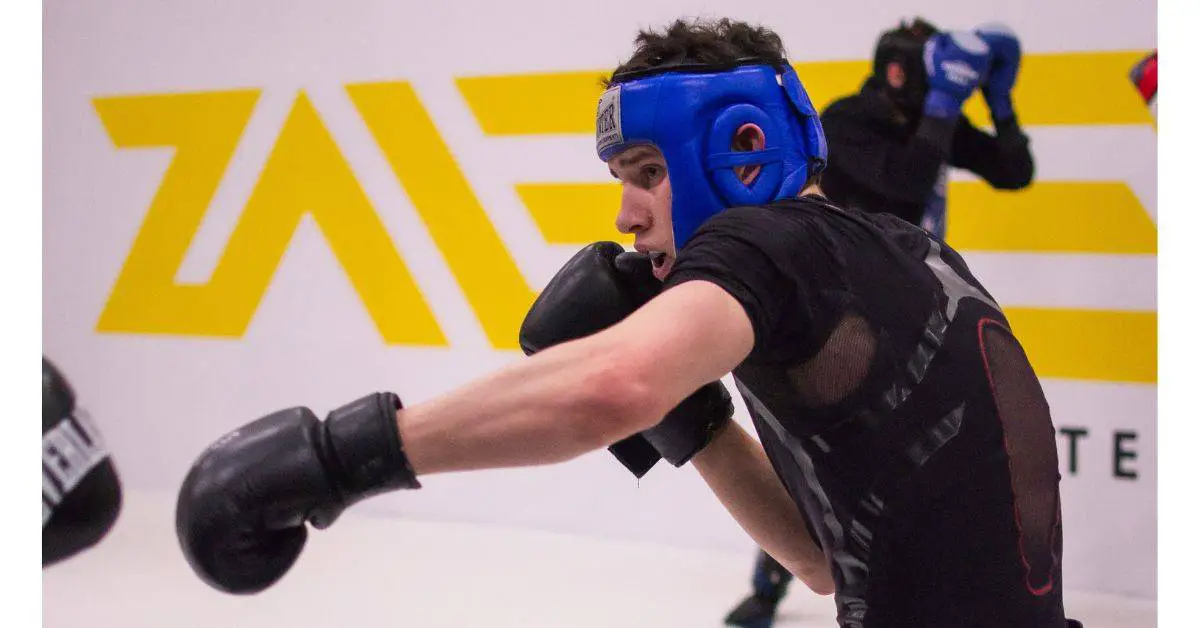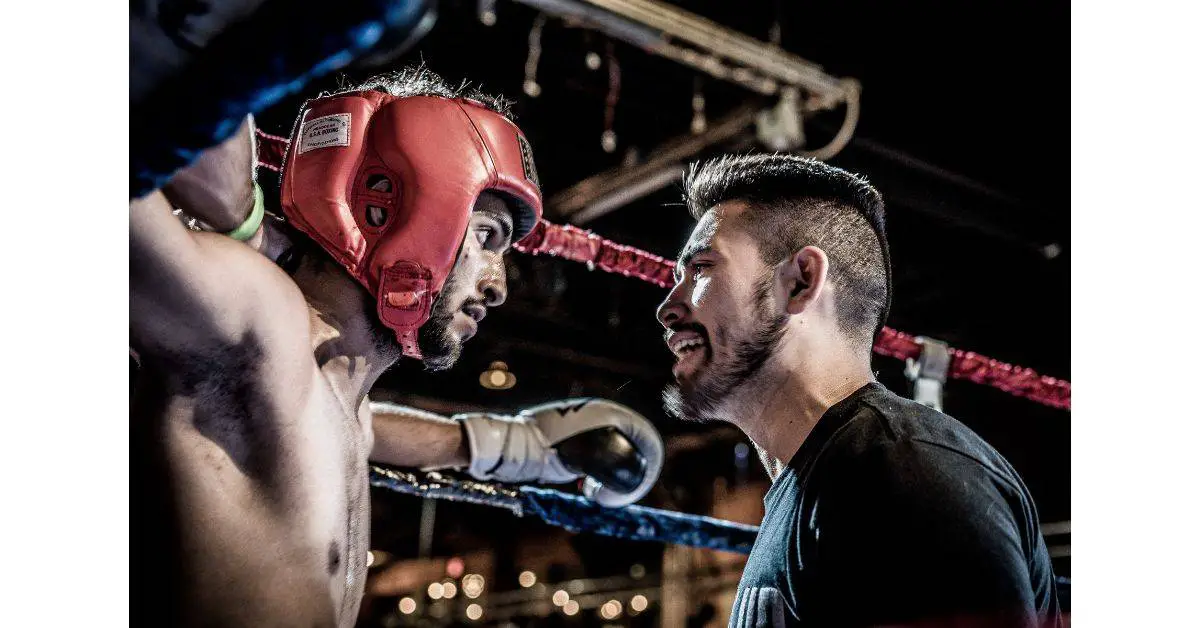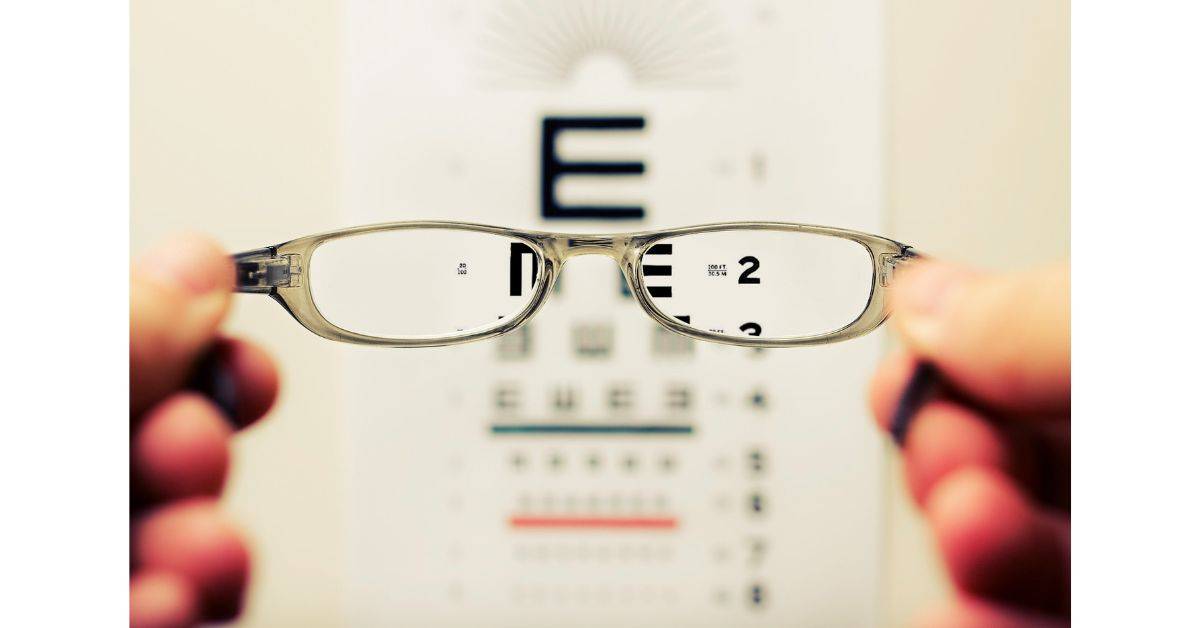In the past, people have related bad eyesight to every other thing but sports. However, nowadays, athletes with bad eyesight continue to increase in the sports domain. Therefore, is boxing possible with bad eyesight?
One can box with lousy eyesight, but one cannot wear glasses or contacts. Even people with especially poor vision could participate in boxing training drills such as pads, heavy bags, and speed bags. However, bad eyesight is a disadvantage in boxing elements such as fighting and sparring.
In essence, it depends on how well a boxer can judge the distance and adequately see the opponent in front of them. Joe Frazier is an example of a great boxer who trained with bad eyesight. Joe won multiple titles while still having lousy eyesight.
Before we dive in, if you want to learn more about the best boxing headgear you can buy to ensure the short and long-term health of your brain and head, follow the link.
Do you need good vision for boxing?
Few sports depend as heavily as boxing does on good vision and visual perception for both success and survival.
A boxer’s vision is just as essential to succeed in the ring as their boxing abilities. A boxer must constantly watch an opponent’s every move, gesture, and muscle cramp to assess danger, spot feints, and set up a defense. A boxer’s perfect vision is beneficial, but having subpar visual abilities can negate this benefit.

Although having good vision is essential for boxing, having good visual abilities can also help a boxer gauge their opponent’s strength, spot feints, and get ready for the right cross that will knock them out.
Good vision is crucial for predicting your opponent’s next move, spotting a cross-jab coming, and ensuring your safety throughout a match. A boxer can see things out of the corner of their eye with their peripheral vision, sometimes known as “side vision,” such as the abrupt shuffling of the opponent’s feet and the little movement of their back.
A boxer’s boxing performance and safety in the ring depend significantly on visual abilities.
A boxer can use various visual abilities to their advantage, from spotting a muscle cramp in their opponent’s jaw to anticipating an uppercut to timing their jab for an impactful knockout. Poor visual abilities will influence a boxer’s performance and capacity for scoring TKO’s.
A boxer may react to a situation more quickly the faster their brain interprets the visual information coming from their eyes. Throughout the game, one can use this skill to defend themselves and enhance their safety.
Can a boxer wear contact lenses?
With the increased number of boxers with impaired vision, whether one can wear contact lenses while boxing always suffices.
Due to the possibility that their displacement could, in rare circumstances, result in blurry visions and significant eye damage, boxing authorities have prohibited boxers from wearing contacts. Even with some sparring, contact lenses are prone to motion and can easily slide around in the eyes.
The first danger of wearing contacts during a fight is a boxer can lose contact.
While many boxers in internet forums would claim that it does not happen frequently, it does happen occasionally.
With enough force, a lens might slip further into one’s eyes and become even more challenging to remove. This can be both unpleasant and disorienting. At this point, one will be at a disadvantage against their opponent and most likely lose the fight.
One’s contacts may need to be taken out every night to be cleaned and rehydrated, depending on the brand. For one’s eyes to absorb oxygen, they also require a break from the lens. Therefore, having contact in one’s eye for an extended period can result in other eye health problems.
During a fight in the ring where the opponent does not hold back, a boxer should not wear contact lenses due to the risks it brings forward. The risks include eye swelling, losing contact with one’s eye, or losing them altogether.
If you want to read more about whether professional and amateur boxers can wear contacts, follow the link to learn about the rules regarding this question.
Can you box it with glasses?
Over the next few decades, it is anticipated that more people will use glasses or contacts than the current global average of more than 60%. So can one box with glasses?
Boxing rules do not allow boxers to wear glasses while in the ring. Doctors perform medical tests on boxers to ensure they are fit to fight. A boxer with lousy eyesight to the point where they are physically impaired should not fight in competitions. Glasses are frail and can easily break if a boxer receives a blow.

Before they start boxing, they should learn the rules about training with glasses from their local trainer or coach. While one will not be able to wear glasses during an actual bout in the ring, there are still a few ways to get past poor vision.
This might be a drastic alternative if one is new to boxing, but professional boxers frequently have corrective eye surgery to enhance their eyesight. An eye doctor can use a laser to reshape the cornea to permanently correct your vision, removing the need for glasses or contact lenses.
With decades of research and development behind it, the treatment is safe, and more than 95% of all patients report happy results and go on to live without glasses. After surgery, some patients do experience varying vision, though. This could be your best choice if you want to become a professional boxer.
How do you do boxing if you wear glasses?
It may seem intimidating at first if one is used to wearing glasses, but one can train their eyes to box without assistance. Many boxers who wear glasses don’t merely leave them at home when they enter the ring. So how do you do boxing if you wear glasses?
One can do boxing without wearing glasses by building their eyesight and confidence in the ring using different methods. These include using various punching bags and targets to practice, sparring with a trusted partner, and learning to shadow the box. One can train with targets and dummies to practice throwing punches accurately.
This is essentially the same as how anyone else would practice. Practice makes perfect, even if one cannot see where their punches land.
Shadowboxing involves a boxer sparring with an imaginary partner. As though facing an opponent, get into punching the air. A boxer will improve footwork, build stronger, more resilient arm muscles, and create muscle memory.
However, finding the proper partner involves more than trust. Additionally, developing your self-confidence is essential. Choosing a partner who will not beat you into submission is the secret to improving your talents without damaging your self-worth.
Even while it could take some being accustomed to, with perseverance and challenging practice, you’ll be able to react swiftly and precisely without your glasses. One will gain self-assurance and eventually be able to compete in a real fight. It may seem intimidating at first if you’re used to wearing glasses, but you can train your eyes to box without assistance.
Final Words
Most of the time, having bad vision shouldn’t prevent you from boxing. There are several solutions, and boxing can still be practiced even for those unable to participate in competitions.
Boxing authorities do not allow glasses or contact lenses in the ring. You are neither more nor less competent or athletic just because you are short or have long vision, whether through body sparring, laser eye surgery, or even something as basic as shadowboxing. There are numerous methods to start boxing.
Check with the relevant regulating authorities to see if you can compete if your eyesight is horrible, and take the steps stated above towards building confidence on the ring.
If you enjoyed reading this article, you’ll also enjoy reading about the best boxing shoes for your money. Suiting yourself with a pair—will immediately boost your skills; so be sure to check it out.

